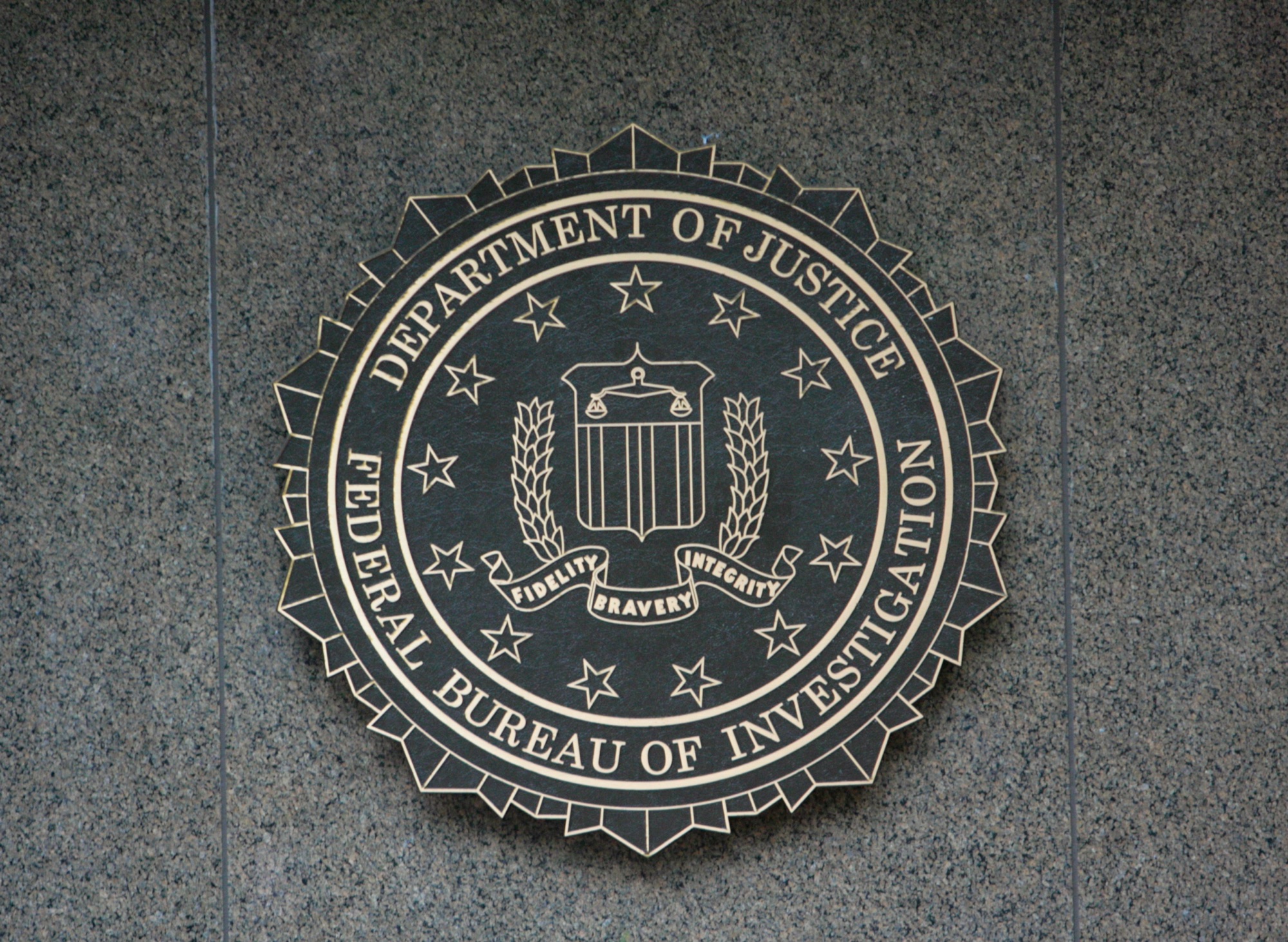The Federal Bureau of Investigation (FBI) is the principal investigative arm of the United States Department of Justice (DOJ). It plays a critical role in safeguarding the country’s security, enforcing federal laws, and conducting a wide range of criminal and counterintelligence investigations. The FBI’s mission has evolved over the years, expanding to include cybercrime, terrorism, and organized crime, among other critical areas.
In this article, we’ll provide a detailed overview of the FBI’s roles and functions, outlining its history, structure, and core responsibilities.
The Mission of the FBI
FBI Mission Statement
The official mission of the FBI is:
- “To protect and defend the United States against terrorist and foreign intelligence threats, to uphold and enforce the criminal laws of the United States, and to provide leadership and criminal justice services to federal, state, municipal, and international partners.”
The FBI operates under the authority of the DOJ and is tasked with investigating and preventing federal crimes, maintaining law and order, and ensuring national security.
Core Values
The FBI is guided by several core values, including:
- Fidelity, Bravery, Integrity: The motto of the FBI, representing the agency’s commitment to truth, justice, and the rule of law.
- Adherence to the Constitution: Upholding the Constitution and protecting civil liberties while ensuring national security.
- Partnership and Collaboration: Working with other federal, state, local, and international agencies to achieve its mission.
History of the FBI
The Formation of the FBI
The FBI was established in 1908 as the Bureau of Investigation (BOI), initially tasked with investigating violations of federal laws that spanned across state lines. It was created in response to the growing need for a federal law enforcement agency to handle crimes that state and local law enforcement agencies could not, such as interstate crimes and federal corruption.
In 1935, the BOI was officially renamed the Federal Bureau of Investigation (FBI) under the leadership of J. Edgar Hoover, who was instrumental in shaping the organization into a powerful and influential agency. Hoover served as the FBI’s director for nearly five decades and established many of its investigative techniques and standards.
Evolution of the FBI’s Role
Over the years, the FBI’s mission has evolved to address emerging threats, such as:
- Organized Crime: In the mid-20th century, the FBI played a significant role in combatting organized crime syndicates, particularly during the Prohibition era and the rise of the Mafia.
- Civil Rights Investigations: In the 1960s, the FBI began investigating civil rights violations, including hate crimes and racially motivated violence.
- Terrorism: After the attacks of September 11, 2001, the FBI shifted its focus to counterterrorism as a top priority, becoming the lead federal agency in addressing domestic and international terrorism.
Today, the FBI is at the forefront of addressing both criminal and national security threats, including cybercrime, espionage, white-collar crime, and public corruption.
Structure and Organization of the FBI
Headquarters and Field Offices
The FBI’s main headquarters is located in Washington, D.C., at the J. Edgar Hoover Building. The agency is also supported by 56 field offices across the United States, which act as regional hubs for investigations. Each field office is further divided into smaller satellite offices, called resident agencies, which extend the FBI’s reach to local communities.
Divisions within the FBI
The FBI is organized into various divisions that handle different aspects of its mission:
- Counterterrorism Division: Focuses on preventing and disrupting terrorist attacks, both domestically and internationally. The Counterterrorism Division coordinates efforts to detect and neutralize threats from terrorist groups, individuals, and foreign terrorist organizations. This division also works closely with other federal agencies like the Department of Homeland Security (DHS) and CIA, as well as foreign intelligence partners.
- Counterintelligence Division: Focuses on countering foreign espionage and intelligence threats. This division aims to protect the U.S. from foreign agents who seek to steal sensitive information related to national security, technology, military, and trade secrets. The FBI is the lead agency in identifying and neutralizing foreign spies operating within the U.S.
- Criminal Investigative Division: Handles investigations into traditional crimes, including organized crime, public corruption, violent crime, human trafficking, financial fraud, drug trafficking, and white-collar crime. This division is responsible for enforcing federal criminal statutes and working with other law enforcement agencies to solve complex criminal cases.
- Cyber Division: Focuses on cybercrime, including hacking, data breaches, ransomware attacks, and intellectual property theft. With the increasing reliance on digital infrastructure, the FBI’s Cyber Division is responsible for protecting critical systems, networks, and data from criminal and state-sponsored cyberattacks.
- Intelligence Division: Responsible for gathering, analyzing, and disseminating intelligence related to threats against the United States. The Intelligence Division ensures that the FBI can make informed decisions about how to address emerging risks to national security and public safety. It often coordinates with the Office of the Director of National Intelligence (ODNI) and other intelligence agencies.
- Weapons of Mass Destruction (WMD) Directorate: The WMD Directorate focuses on preventing the acquisition, development, and use of weapons of mass destruction, including nuclear, chemical, biological, and radiological weapons, by hostile states or terrorist groups.
Specialized Units and Programs
- Hostage Rescue Team (HRT): The FBI’s elite tactical unit, responsible for high-risk operations such as hostage rescues, counterterrorism raids, and dealing with barricaded suspects. The HRT works in conjunction with the FBI’s SWAT teams and is the equivalent of a national special forces unit in law enforcement.
- Joint Terrorism Task Forces (JTTFs): Multi-agency task forces made up of federal, state, and local law enforcement officers working together to prevent terrorist acts. JTTFs are present in all major cities across the U.S. and play a critical role in investigating potential terror threats.
- Victim Services Division: Provides support to crime victims, ensuring they have access to resources and information throughout an investigation and after an arrest. The FBI’s victim assistance program is designed to ensure that victims’ rights are upheld in federal investigations.
FBI’s Key Roles and Responsibilities
Counterterrorism
After the 9/11 attacks, counterterrorism became the FBI’s top priority. The agency is tasked with identifying, investigating, and disrupting terrorist plots before they occur. This includes monitoring domestic and international terrorist organizations, tracking potential lone-wolf attackers, and coordinating counterterrorism efforts with other national and international partners.
The FBI’s Terrorist Screening Center (TSC) maintains a database of known or suspected terrorists, which is used to screen individuals entering the U.S. and monitor potential threats within the country.
Counterintelligence and Espionage
The FBI is responsible for protecting the U.S. from foreign intelligence operations and espionage. It investigates cases where foreign governments or agents attempt to spy on American military, political, and economic interests. High-profile cases of espionage, such as Robert Hanssen, who spied for the Soviet Union, fall under the FBI’s counterintelligence efforts.
The FBI also tracks economic espionage, where foreign governments or corporations attempt to steal trade secrets or intellectual property from American companies and research institutions.
Cybercrime and Cybersecurity
With the rise of digital technologies, cybercrime has become a major focus for the FBI. The Cyber Division handles cases related to hacking, online fraud, ransomware, identity theft, and cyberterrorism. The FBI also protects critical infrastructure, such as the energy grid and financial systems, from cyberattacks.
The FBI’s Internet Crime Complaint Center (IC3) allows citizens to report cybercrimes, such as online scams, which are then investigated by the FBI in partnership with other agencies.
Organized Crime and Drug Trafficking
The FBI has long been involved in investigating and dismantling organized crime syndicates, including the Mafia, drug cartels, and other transnational criminal organizations. The FBI’s organized crime units work closely with the DEA and other international law enforcement agencies to track the movement of narcotics, weapons, and human trafficking operations.
Public Corruption
Public corruption, particularly involving elected officials, law enforcement, and public servants, is a key focus of the FBI. The agency investigates cases of bribery, election fraud, and misuse of public office for private gain. The FBI’s Public Corruption Unit seeks to uphold the integrity of governmental institutions at the local, state, and federal levels.
White-Collar Crime
White-collar crime involves financial fraud, embezzlement, insider trading, and corporate corruption. The FBI investigates major fraud schemes, such as Ponzi schemes, bank fraud, and securities fraud, with the goal of protecting the financial system and holding accountable those responsible for corporate malfeasance.
The FBI’s focus on white-collar crime also extends to healthcare fraud, mortgage fraud, and identity theft.
Civil Rights Violations
The FBI plays a critical role in investigating violations of civil rights, including hate crimes, human trafficking, and police misconduct. The Civil Rights Division investigates cases where individuals or groups are targeted based on their race, religion, ethnicity, gender, or sexual orientation. The FBI also investigates allegations of excessive force by law enforcement and other civil liberties violations.
Violent Crime and Gangs
The FBI works to reduce violent crime by targeting gangs, serial killers, and violent fugitives. The Violent Criminal Apprehension Program (ViCAP) is used to track and analyze crimes committed by serial offenders. Additionally, the FBI works with state and local law enforcement through gang task forces to disrupt violent street gangs and reduce crime in high-risk communities.
Collaboration and Partnerships
Interagency Collaboration
The FBI frequently works alongside other federal agencies, including the CIA, DEA, ATF, DHS, and Secret Service, as well as international agencies such as Interpol and foreign intelligence services. This collaboration is essential for tackling transnational threats like terrorism, cybercrime, and organized crime.
Local and State Partnerships
The FBI also partners with local and state law enforcement agencies across the country. Through programs like Fusion Centers and JTTFs, the FBI shares intelligence and resources to address local security concerns while contributing to larger national security efforts.
International Operations
The FBI has Legal Attaché (Legat) offices in over 60 countries, which help coordinate investigations that cross international borders. These offices facilitate cooperation between the FBI and foreign law enforcement agencies in areas such as extradition, terrorism investigations, and global crime fighting.
Conclusion
The FBI plays a pivotal role in maintaining the security and integrity of the United States by investigating and preventing a wide range of criminal and national security threats. From counterterrorism and espionage to cybercrime and public corruption, the FBI’s responsibilities are diverse and complex. Through its partnerships with other federal, state, and international agencies, the FBI continues to adapt to evolving threats, ensuring that it remains at the forefront of law enforcement and national security efforts.




